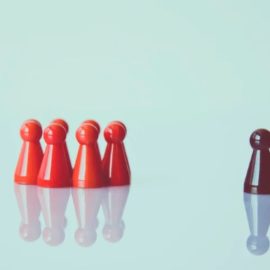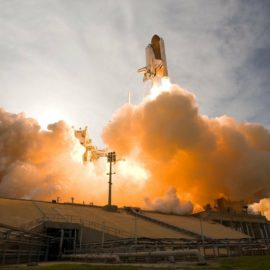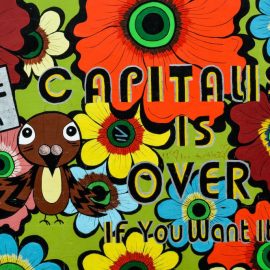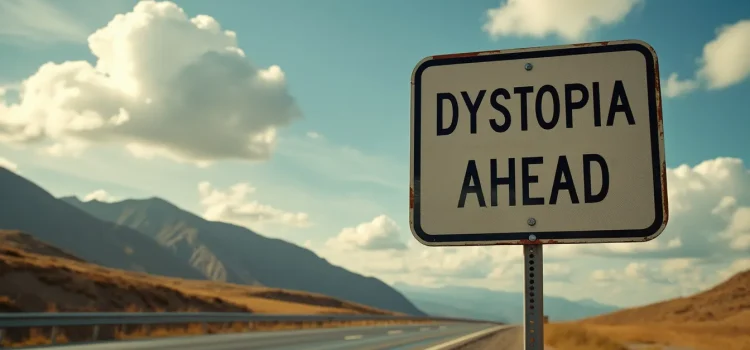
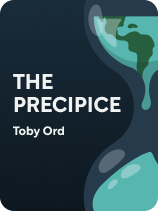
This article is an excerpt from the Shortform book guide to "The Precipice" by Toby Ord. Shortform has the world's best summaries and analyses of books you should be reading.
Like this article? Sign up for a free trial here.
Are we heading toward a dystopian future? What can we learn from fictional dystopias to prevent real-world catastrophes?
In The Precipice, Toby Ord writes that dystopian futures come in various forms, from enforced totalitarian regimes to unintended consequences of human actions. Writers and filmmakers have long explored these possibilities, offering insights into potential societal pitfalls.
Keep reading to discover the three main types of dystopian futures and how they might unfold in our world.
Dystopian Futures
In his book, Ord identifies the emergence of oppressive societal structures as a potential future threat to society. These dystopian futures don’t necessarily precipitate human extinction, but they’re catastrophic because they’ll permanently prevent us from reaching our full potential—we’ll become locked into a state that we can’t escape from. Ord says there are three main dystopian futures we’re at risk of encountering.
#1: Enforced Dystopias
The first type of dystopian society, which Ord calls enforced dystopias, are undesired by the masses and enforced by a small totalitarian regime. This society could rise by indoctrinating civilians and suppressing dissent with the help of AI.
#2: Undesired Dystopias
The second type of dystopian society, called undesired dystopias, are undesired by the masses but a result of human actions. For example, the capitalist race for lowest costs and highest income could lead to a world where most of the population lives in bleak conditions with extremely low wages.
#3: Desired Dystopias
The third type of dystopian future, called desired dystopias, are desired by the masses, but only because they blindly believe certain ideologies and don’t know the potential they’re throwing away. For example, we may let disease and illness run rampant by believing treatment is immoral or unnatural.
| Examples of Dystopian Futures Stories from writers and filmmakers can help us understand the possibilities of a dystopian future. For example, George Orwell’s 1984 is a prime example of an enforced dystopia—a totalitarian regime is in control of society and has brainwashed citizens into total obedience. Some forms of control include the creation of a new language called Newspeak, which is designed to limit free thought and promote regime doctrines—due to language limitations, people are literally unable to express dissent. A thought experiment by Scott Alexander exemplifies an undesired dystopia: a society where everyone is forced to electrically shock themselves for eight hours a day. If someone doesn’t follow this rule, a second rule states that everyone else must unite to kill the rule-breaker. Although no one wants to shock themselves, no one breaks the rule because they know they would be killed. An example of a desired dystopia can be seen in the Netflix series Brave New World, which is based closely on Aldous Huxley’s novel but features additions to the story such as AI. In the series, an AI program controls society—emotions are conditioned out of humans in childhood, they are fed pills to control their emotions, monogamy is forbidden, women no longer carry children, and children are instead created in labs and raised collectively. The society is devoid of core human emotions like love and passion and all virtues other than gratification. Their society is stagnant and their lives devoid of feeling. However, they think they’ve reached peak happiness because they don’t know anything better is possible. |

———End of Preview———
Like what you just read? Read the rest of the world's best book summary and analysis of Toby Ord's "The Precipice" at Shortform.
Here's what you'll find in our full The Precipice summary:
- How an apocalypse that ends humanity is possible
- How we can still prevent an existential catastrophe
- The three most likely species-ending events in the future


